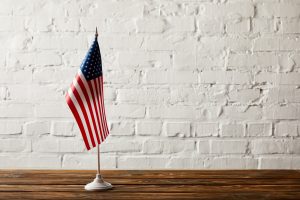For an empire, the United States hides it well. In his 2019 book, “How to Hide an Empire: A History of the Greater United States,” Daniel Immerwahr told the story of the United States beyond its continental borders. Much of that “Greater United States” lies in Asia. The United States of 2023 does not often reflect on itself as a colonial power, but the evidence of American colonialism blankets Asia: from the scars of massive conflicts in Japan, Korea, and Vietnam, to military bases dotted across the region, to the dominance of English.
In the following interview, Immerwahr – the Bergen Evans Professor in the Humanities at Northwestern University’s History Department – reflects on the United States’s colonial past, and colonial present, in Asia.
What accounts for the “hidden” nature of the United States’ overseas imperium? Is this simply a matter of historical and geographic distance that places it beyond the national consciousness, or are there other factors at play?
A distinctive feature of the United States’ territorial empire is how it’s been kept like a secret. And why has that been? It’s not geographic distance. Other countries had distant colonies – India is far from Great Britain – that they had no difficulty paying attention to. And Puerto Rico and the U.S. Virgin Islands, two U.S. territories, are quite close to its mainland. It’s also not “historical distance”: colonialism isn’t over for the United States, which has five inhabited territories today.
My sense is that three things are important. First, the United States was born of a revolt against empire, so anti-imperialism has been part of its dominant culture. Second, the experience of settler colonialism – violently dispossessing Native Americans – loomed so large in the cultural imagination of the country that overseas empire became hard to fathom. Third, the United States achieved global power during the age of decolonization, which encouraged its leaders to dissociate themselves from colonialism. All this encouraged the United States to sweep its colonies under the rug.

































